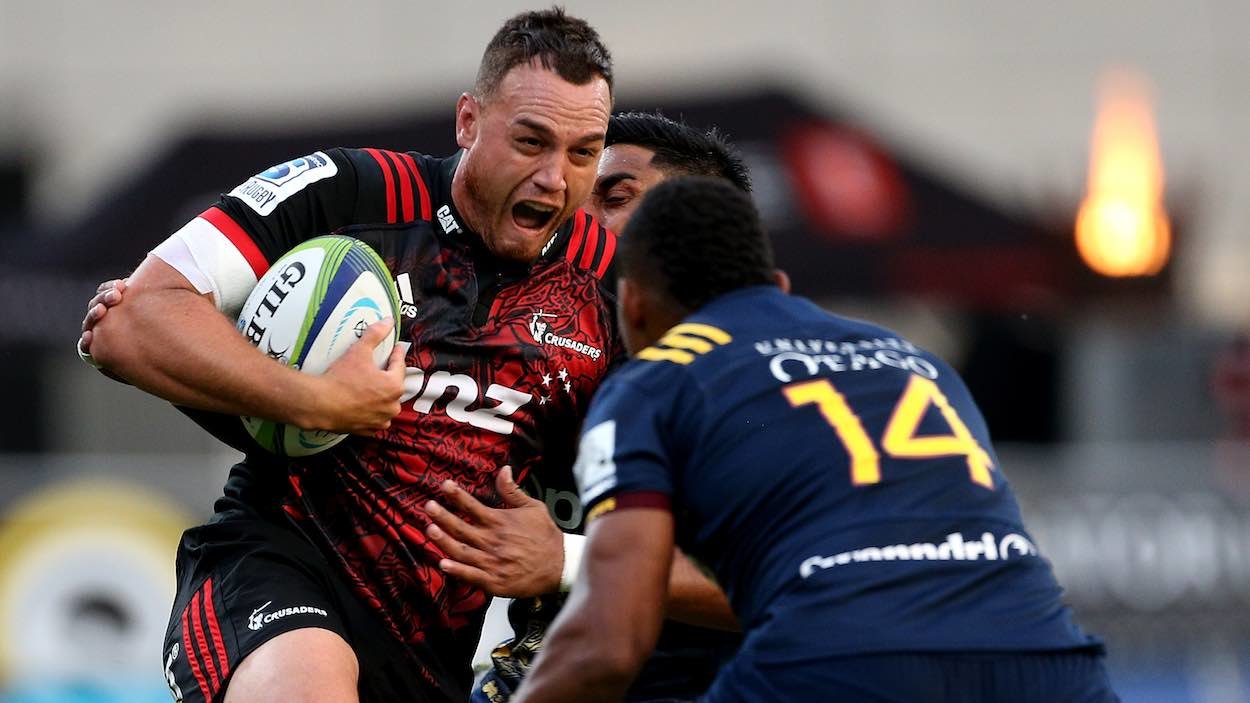How important is discipline? Super Rugby's playoff teams by the numbers

The Super Rugby finals kick off this weekend with the best attacking teams in the competition favoured to have it all their way in the first round. That’s all well and good, but finals footy is finals footy, and as Scotty Stevenson discovers, we may need to have a conversation about discipline, too.
You never want to leave the result in the hands of the referee. So goes one of rugby’s more timeless adages. Rugby’s history is chock-full of results that turned on a last minute penalty call – or non-call as more recent events would remind us – and there are plenty of gnarly old veterans still harbouring various resentments at match officials who rightly or wrongly robbed them of their shot at immortality.
What we do know is that when it comes to finals time, and teams are puckered up tighter than a bullfrog’s sphincter, discipline becomes a coach’s catch-cry. No playoff team, regardless of how many buckets of points they have scored during the regular season, can afford to let their guard down in a do-or-die match. Scoreboard pressure is a very real thing; conceding momentum-shifting penalties in play-off games is a recipe for disaster, and it’s the New Zealand sides most at risk of being on the wrong side of the penalty equation.
Before we get to that, some context. Firstly, it’s not as if teams in Super Rugby are renowned for playing for penalties. Of the 1,496 penalties earned inside opposition territory during the regular season, just 539 were used as goal-scoring attempts. Of those attempts, 426 were successful. Simply put, Super Rugby teams converted just 28% of all opposition half penalties into three-point plays.
A breakdown of the playoffs teams looks like this:

All up, the playoff teams converted just 27.7% – 189 of their 680 earned penalties in opposition territory – into three-point plays, a tick under the competition percentage. Remove the Sharks – inarguably the most enthusiastic penalty-kicking team off them all, and that figure drops to just 24%.
This could be an indication that teams would rather attempt to convert penalties into try-scoring chances – especially in the case of the Hurricanes who converted a lowly 11.8% of their earned penalties into three points. However, what is noticeable is that New Zealand teams are behind all other sides in their ability to win valuable penalties in opposition territory. Note how the Crusaders, Highlanders, Hurricanes and Chiefs are the bottom four teams.
[rugbypass-ad-banner id=”1473723684″]
If you flip that equation and look at the penalties each New Zealand team has conceded in their own half, the Crusaders sit on 83, the Hurricanes on 84, the Chiefs on 87, and the Highlanders on 71, making them the only New Zealand side that wins more penalties in opposition territory than they concede in their own.
That is a trend that continues through into the season’s total penalty differential. As you can see in the following breakdown, the New Zealand playoff sides have conceded more penalties this season than they have earned.

If we look at every other team in the playoffs, the story is the complete opposite. The Brumbies, Lions, Sharks and Stormers all boast a positive penalty differential this season.

We can look further at the specific types of penalties, too. At the breakdown, it is once again the New Zealand sides who boast the worst penalty differential this season, with three of the four in negative territory and only the Hurricanes in the positive.

The same story is again illustrated at the scrum, where all but one New Zealand team have conceded more penalties than they have earned. The Crusaders and Stormers (+12) have the best scrum penalty differential this season, with the Lions (+9), and Brumbies and Sharks (+6) also in the positive. The Chiefs (-2), Highlanders (-4) and Hurricanes (-11) are the worst playoff teams in terms of scrum discipline this season.
Will any of this have a bearing on the playoff results? It has the potential to, especially in a tight contest. There is no doubt the New Zealand teams in particular will be focussed on reducing their penalty counts this weekend. Regardless of whether teams take shots or not, penalties have the effect of stifling flow, especially when a team is looking to attack.
That said, let’s return to that original adage. We’ll leave you with a look at the try differential this season and let you make your own conclusion about which teams will advance to the semifinals.

All numbers supplied by 3N Rugby
























